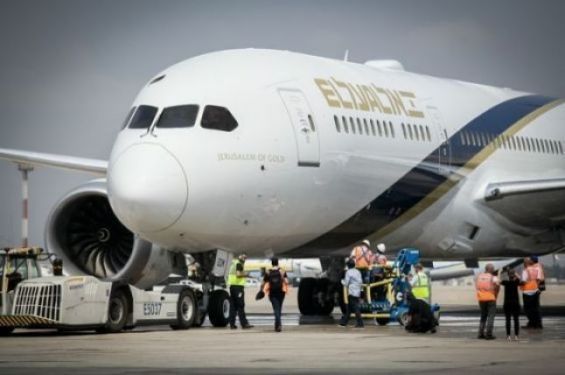Several Israeli media reported on Thursday that Morocco would have reportedly refused to allow the repatriation of Israeli nationals stranded on its territory.
Israeli newspapers such as I24news and Jerusalem Post quoted Army Radio, an Israeli radio network operated by the Israel Defense Forces, writing that Rabat did not allow El Al planes to land in the Marrakech and Casablanca airports to carry out repatriation operations.
The Israeli military has claimed that this process would have become very difficult in light of a political crisis between Morocco and the United Arab Emirates.
The same source revealed that Morocco «agreed to allow the evacuation of Israeli citizens from the country due to the coronavirus». While 74 people from the United Arab Emirates are also stranded in the Kingdom, Abu Dhabi would have «contacted Israel and offered to evacuate both its citizens and the Israelis on one flight by the Gulf state, since El Al flights are forbidden from entering Morocco».
However, Morocco would have, reportedly, «expressed anger at the fact that the UAE and Israel had made such an agreement without first consulting the Moroccan government and blocked the move». Rabat is said to have «blocked» the repatriation, the same radio reports.
The same source indicated that «the UAE reportedly attempted similar moves with several other countries» to evacuate their citizens from Morocco. For the moment «the Israelis stuck in Morocco are split between hotels in Marrakech and the Jewish community in Casablanca», Jerusalem Post said.
Morocco's refusal «explained» by the crisis between Rabat and Abu Dhabi
Israeli media link Morocco’s refusal to the diplomatic crisis between Rabat and Abu Dhabi. «The spat comes amid heightened tensions between Morocco and the UAE as Morocco grows close with Qatar and the UAE is accused of defaming Moroccan royalty», i24news claimed.
Moroccan media this week pointed to a campaign on Twitter by UAE accounts targeting the Head of government, Saadeddine El Othmani. UAE-based Saudi Arabian channel Al Arabiya also slammed El Othmani for removing his protective mask during his speech at the Lower House of the parliament.
The crisis between the UAE and Morocco is an open secret. While Israeli media refer to the «recalling» of the ambassadors of the two countries, Rabat and Abu Dhabi diverge on several thorny issues.
Just this week, Abu Dhabi announced retaliatory measures against countries that reject its proposal to repatriate their nationals. A proposal that embarrasses Morocco, because it comes at a time when thousands of Moroccans stranded abroad are calling for their repatriation.
In addition, the two states are on two opposite sides with regard to the Libyan case. In fact, in January, the Emirati Foreign Minister visited Maghreb countries without coming to Morocco.
The beginnings of the diplomatic crisis between the two countries emerged in January of last year after Moroccan diplomat Nasser Bourita officially announced that Rabat has distanced itself from the Riyadh project and the war in Yemen. Four months later, he had visited, as part of a tour, the majority of the countries of the Cooperation Council of the Gulf States (GCC), without stopping in Abu Dhabi, formerly «traditional allies» of the Kingdom in the region.
Contacted by Yabiladi on Thursday, a source at the Moroccan Ministry of Foreign Affairs refused to comment on the information on the repatriation of Israeli nationals, citing «information, without source, published in the Israeli press».





 chargement...
chargement...













